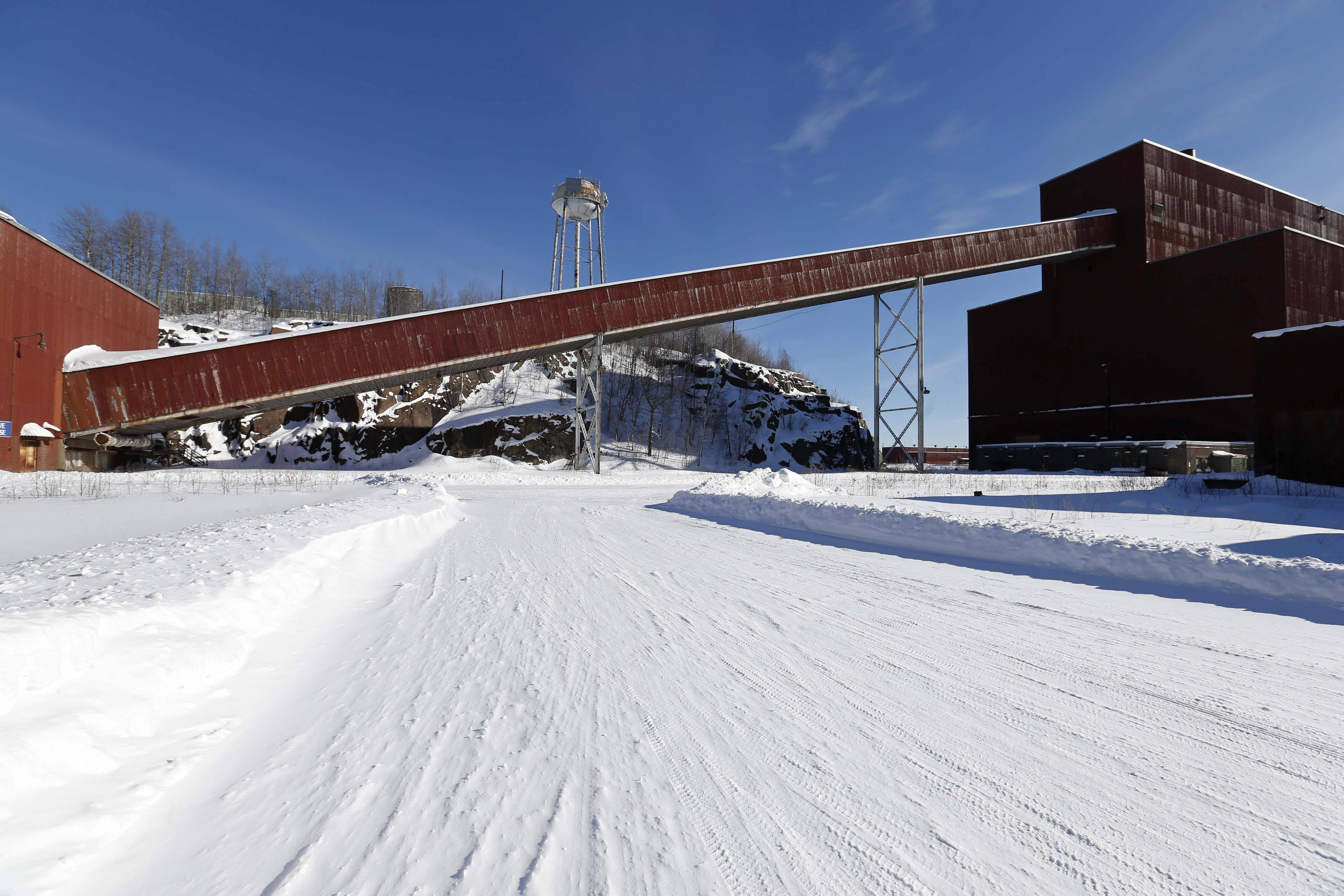Northeastern Minnesota’s Iron Range has been a major mining hub since the 1860s. Nestled among thick forests and many of the state’s famed “10,000 lakes,” open-pit mines there produce low-grade iron ore that’s shipped to steel mills around the country. But for the last few decades, as the U.S. steel industry has waned and demand for different minerals has grown, multiple companies have proposed something new: hard rock mining, which involves extracting valuable metals from sulfide ores and produces large amounts of acidic waste. One of these, the PolyMet Mining Corporation, has been locked in a battle to open Minnesota’s first copper-sulfide mine near the tiny town of Babbitt for over 17 years. The $1 billion project has been mired in legal challenges almost since its inception.
Now, environmentalists and nearby tribal nations hope that recent court victories will shut it down for good. Earlier this month, the Army Corps of Engineers held a hearing to decide whether to reissue a permit for PolyMet to dump waste rock on more than 900 acres of wetlands, a possibility that the downstream Fond du Lac Band of Lake Superior Chippewa vehemently opposes. The Environmental Protection Agency came out in support of the tribe, telling the Corps that allowing the mine to go ahead with its plans would risk contaminating the already-polluted St. Louis River with dangerous levels of mercury.
As opponents highlight the mine’s environmental impact, PolyMet is touting its potential for producing valuable metals needed to build transmission lines and electric vehicle batteries — making it the latest dispute over how to responsibly mine the materials needed for the renewable energy transition. In Nevada, a lithium mine is facing stark opposition from tribes who say it would damage a culturally, historically, and spiritually significant area. Cobalt miners in the Democratic Republic of Congo have reportedly been subjected to exploitative working conditions, including by the company that owns PolyMet. At the same time, a bipartisan group of lawmakers is pushing for an increase in domestic mining in response to supply chain issues and increased demand.
Activists say these conflicts are increasingly testing the idea of a “just transition” — one that doesn’t repeat the mistakes of the past, such as prioritizing extraction over the needs of Indigenous people and the environment, in shifting to new forms of energy.
“The Band is not opposed to mining,” Band Chairman Kevin Dupuis Sr. said in a press release on the first day of the Army Corps hearing. “But if mining is to occur, we must ensure that our waters are protected, not just for the Band, but for all Minnesotans.”

PolyMet, which is majority owned by the Swiss mining conglomerate Glencore, first unveiled plans for its Northern Minnesota mine, the NorthMet project, in 2005. Since then, it’s faced legal challenges to multiple other permits it needs to move forward, including water pollution, air pollution, and mining permits that are either tied up in litigation or have been sent back to state agencies for further study and adjustment. And it’s not the only disputed mine in Minnesota; in January, the Biden administration canceled two federal leases for the Twin Metals mine, which would have extracted copper, nickel, and precious metals near the Boundary Waters Canoe Wilderness.
In the last few years, PolyMet has leaned into its role as a supplier of elements needed to build electric car batteries and other renewable energy infrastructure. The company has said that the area of the NorthMet project contains significant reserves of copper, nickel, and palladium — “metals vital to global carbon reduction efforts” — and that it would become one of the country’s top suppliers once the mine becomes operational, although it can’t guarantee how much of its eventual output would go toward green energy.
“These metals that we’re producing are really crucial to not only modern society,” PolyMet spokesperson Bruce Richardson told MinnPost, but also “for clean energy and climate change and our own security.”
JT Haines, the northeastern Minnesota program director for the Minnesota Center for Environmental Advocacy, called this view “problematic.” The industry is using the demand for new metals for green energy as a “safe harbor talking point,” he said, to justify destructive mining activities without addressing the core issue of consumption and extraction. Instead, Haines argued, the focus should be on how to recycle and reuse the metals that already exist while reducing consumption and energy use in the first place.
“It’s clear that we can’t mine or drive our way out of the climate crisis,” Haines said.
The contested permit at the center of the recent Army Corps hearing was issued in 2019 – despite years of opposition from the Fond du Lac Band, which as a sovereign nation has the right to set its own water quality standards and the legal status of a downstream state. Last year, following a lawsuit from the tribe, the EPA determined that the NorthMet project “may affect” water in the Fond du Lac Band’s territory as well as the state of Wisconsin, and asked the Army Corps to suspend the permit.

At the hearing on May 3, the EPA said PolyMet’s plan to dredge and fill the wetlands with mining waste could contaminate multiple waterways that drain into the St. Louis River, which flows through the tribe’s reservation near Duluth. The biggest concern is mercury, a potent neurotoxin that can be a byproduct of mining. The NorthMet project would also release sulfate, which helps convert mercury into methylmercury — the metal’s most toxic form, which accumulates in fish and other wildlife and can eventually be toxic to humans that consume it.
The St. Louis River is already one of Minnesota’s most mercury polluted waterways, and the Fond du Lac Band relies on both the river and its upstream tributaries for hunting, fishing, and gathering foods such as wild rice. While PolyMet said it would capture and treat the mine runoff to prevent mercury and sulfate pollution, the Fond du Lac Band’s scientists testified that the discharge would exceed the tribe’s water quality standards, which are more stringent than Minnesota’s.
The Army Corps is now accepting public comments through June 6, after which it will decide whether to reinstate, permanently revoke, or modify PolyMet’s permit. PolyMet did not respond to a request for comment from Grist.
Although this is the first time that a tribal nation has used its authority as a “downstream state” to challenge a federal permit that could impair its lands and water, a win in the PolyMet case could set a precedent for other tribes to do the same, said the Fond du Lac Band’s attorney, Vanessa Ray-Hodge.
“It’s an important mechanism for tribes to be able to use and to have available to them to protect their reservation waters from development, just like other states can do all the time,” Ray-Hodge said.




